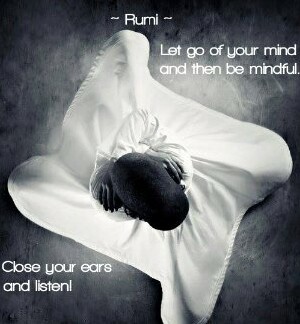 Andy teaches a technique to get to no mind. It was easy for me… but I doubt that it’s easy for you.
Andy teaches a technique to get to no mind. It was easy for me… but I doubt that it’s easy for you.
When you are a “normal” human: living more than 70% of the time in your mind, repeating the same mental processes day in and day out, when you relate to the world through the mind, when you don’t spend any time in the present moment, then getting into no-mind is beyond you.
The best you can do is enter an illusion.
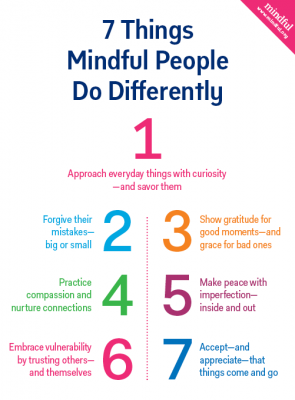 And even if you can, is getting into no mind, useful?
And even if you can, is getting into no mind, useful?
Are you able to get into the present moment through suppressing the mind? No, or not really.
But why am I pushing this “getting into the present” issue? Article after article?
Because unless you are in the present, you miss life. All of life happens in the present moment, that’s why.
The second issue is this: unless you are in the present moment, you fight battles in your head, battles that are not happening, but you are completely missing the “battles” that are: how it is, what is, what’s happening, what someone is saying, doing, what you are doing, all of it.
Now, if you EVER managed to be in the present moment, and conscious enough to observe that the mind doesn’t stop chattering, then what is next will make more sense.
If you NEVER managed to be in the present moment, and conscious enough to observe that the mind doesn’t stop chattering, then you probably think that the thinking that’s going on is you thinking.
Nothing is further from the truth: it goes on without you. At night it’s dreams, but it’s still going on.
So, hoping that the mind will stop its idle chatter is stupid: it won’t stop… and you can’t force it.
The deepest silence is when you allow the mind to do what the mind does, without resisting, without paying attention, without being bothered by it. That is what is called “mindfulness.”
Mindfulness is a state of active, open attention on the present. When you’re mindful, you observe your thoughts and feelings from a distance, without judging them good or bad. Instead of letting your life pass you by, mindfulness means living in the moment and awakening to experience.
The hardest thing to be present to something beautiful, like a flower, or a sunset, and stay present.
When you are present, you are non-verbal. There are no words between you and what you observe.
Very high level of presence. Years worth of training… but it’s worth it.

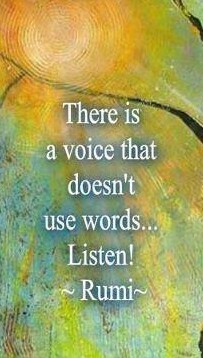
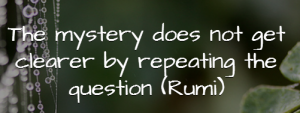
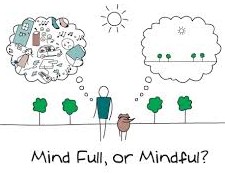

LOL — Yes, I believe I got it. Background chatter is always there. Ignore it and put your attention wherever you are trying be present.
This idea that understanding is “intellectual, kinesthetic, and intuition” is new to me. Intellectual, is mind is it not? What is intellect if it isn’t in the mind? My dominant mode is visual not kinesthetic, so for understanding to take place at the kinesthetic level is unnatural to me. Seems odd too, since only 5% of people are kinesthetic. As someone who has lived in my mind for over 50 years, giving attention to intuition is also new. I am practicing giving attention to these things and seeing some change.
OK, not addressing your errors, I will explain something that is going to be totally new to you: eyes see, and that is a kinesthetic feature, kinesthetic activity of the mind. The rays of light are totally physical, and the activation of the cells in the eye, the nerve impulses are all physical, which I call kinesthetic, because that is how I perceive it when I am in your body, i.e. I am connected to you. The mind doesn’t know anything about what you see for a long time, and even when it does, it only compares it to what it already has stored.
The mind is not your brain, the mind is the storage/retreaval function of the brain.
So when I say mind, I don’t mean your brain.
Intellect is your capacity for structured thinking, your capacity to make connection, not mind, not from the mind, not using the mind: it is the thinking function of the brain. Not the librarian.
It is quite kinesthetic: the electrical impulses are quite clearly felt by me, the empath.
When you say you lived in your mind for over 50 years simply means: you identified yourself with the librarian.
Muscletest shows, that 3% of the time you actually used your intellectual faculties in all that time.
The problem with what people teach is this: pseudo scientists teach one way wrong, scientists teach another way wrong…
But for most people everything is the same as everything else, except not always… meaning, most people have no distinctions, or not enough distinctions. Calling the brain mind is one of those no-distinctions symptoms.
thank you for clearing that up.
Michael, does this mean that you got it, or does this mean that you understand it?
I am confused. When I used to attend your webinars, you used to tell us to “stop thinking,” as if we could shut it off (I now think I can). In this article, you seem to be saying that it is impossible to shut off thinking, and the mind is constantly chattering. Is there a distinction between thinking and mind chatter? Are they not the same?
they are not the same. Mind chatter is like a washing machine… it churns the stuff ad nauseum.
What I meant when I said: “stop thinking” is try not to listen from the mind, try to not put attention, emphasis, energy on what the mind is doing.
When I connect to you, I can feel only the energy you give to thoughts, not the washing machine activity.
When you consider thinking about what the washing machine is doing, when you consider the world approachable with your thoughts, I feel the electric storm in your mind, and I also feel that you are using the wrong organ to do what you are supposed to do.
Understanding something isn’t a mind thing… the mind can only compare and remember. Understanding is way more than that. intellectual, kinesthetic, and intuition.